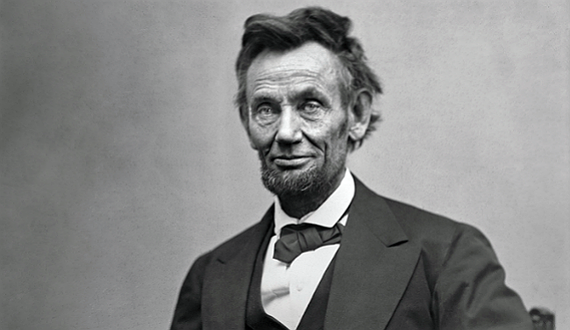Catholics in the United States have traditionally been associated with the Democratic Party. In the 19th and 20th centuries, when so many Catholics were from working-class, immigrant families, often subjected to prejudice (and easily inspired by the social-justice encyclicals of popes Leo XIII, Pius XI, John XXIII, Paul VI and John Paul II), Catholics mostly gravitated to the party that seemed to embody commitment to equality, concern for immigrants and the underprivileged, and against profiteering by bosses and landlords and the capitalist elite.
Those of us who are pro-life, and bring up the subject of politics to fellow Catholics, will often hear the counter-claim that they are for “social justice” – as if these were two opposed ideologies. And they harbor the stereotype of Republicans as people who show no concern for the poor and disadvantaged, and continually oppose progressive implementation of civil rights. That conservatives give more to charity, for example, is dismissed with a wave of the hand, as if contributions to churches and missionary work, etc., can’t compare with the “charity” of government ruled by Democrats.
The strangest misrepresentation of Republicans has to do with civil rights. Historically, every civil rights advance up to the 1964 Civil Rights Act was engineered by Republicans – the 13th, 14th, and 15th Amendments to the Constitution, the Civil Rights Act of 1866, the Reconstruction Act of 1867, anti-lynching bills, anti-poll-tax bills, desegregation of public schools, final implementation of President Truman’s desegregation of the military, and the establishment of the 1958 Civil Rights Commission. President Nixon’s “Revised Philadelphia Plan” applied “affirmative action” to the building trades. And thereafter, it expanded to other economic sectors in which there had been a pattern of discrimination.
How, then, did the stereotype of Republicans as pin-striped, cigar-smoking, elite power-brokers, indifferent to civil rights, get established in the minds of so many, including Catholics? The fact that the Republican Party has offered multi-millionaires or billionaires as candidates for the presidency in the last three elections has not been helpful to the image. But there are other factors:
- In 1960, a time when most black Baptist ministers, including Martin Luther King’s father, identified with the “party of Lincoln,” Martin Luther King was jailed in Reidsville, GA, for a civil rights demonstration. Presidential candidate John F. Kennedy was persuaded by his staff to make a consolatory telephone call to King’s wife, Coretta Scott King, and this impressed MLK so much that he decided, unlike other Black Baptist ministers, not to endorse Nixon. Freed from jail, he began to support Democrats openly, and his leadership strongly affected the black community.
- Even more important (for Catholics), a historic meeting took place in 1964 between the Kennedys and the Shrivers with Catholic priests and theologians, to discuss their possible support of abortion in Congress. The fateful conclusion from their theological advisors was that they could vote in favor of abortion. Since that time, the Democratic Party, with leaders like Ted Kennedy, John Kerry, Nancy Pelosi, and other Catholics, became the champion of “abortion rights.”

- Another decisive factor was the evolution of feminism, which from the beginning of the 20th century had lobbied for women’s suffrage and women’s rights in general, but was strongly against abortion, until the “second wave” feminism of 1968 which focused on emancipation of women from traditional marriage and conventional family life, and redefined “reproductive rights” as part of the existing civil rights agenda. Since then, the civil rights movement of the 60s has expanded – from racial relationships and abortion rights to “marriage” rights for gays, bathroom rights for LGBTs, rights for atheists not to be bothered by Christian symbols, rights of Muslims not to be subjected to criticism, etc.
- In 1984, Cardinal Joseph Bernardin’s “seamless garment” argument, emphasizing the support of life from conception to death gave rise, beyond his intentions, to Democratic Catholic rationalizations that abortion was only just one of the “life” issues, and could be subordinated to other equally important political issues.
In the political landscape, “single-issue” political parties have come to the fore – the “Green” parties in various countries, the “Bloc Quebecois” in Canada; in the United States some “Third Parties” have functioned more or less as “single-issue” movements – the Natural Law Party, the Socialist Party. The Democratic party, has also, for all practical purposes, become a single-issue party with abortion being the paramount civil-rights issue, a sine qua non, as was indicated in September, 2015, when Democrats were ready to actually shut down the government with a filibuster if a provision for defunding Planned Parenthood were not removed from the proposed budget.
The Democratic Party has successfully made the United States one of the countries with the most permissive abortion policies, massively outranking most European countries, which limit elective abortion to the first trimester. In the 2016 Democratic Platform, unlimited access of all women to “safe and legal” abortion is a plank without possibility of compromise, and absolute opposition to the Hyde Amendment, which prohibits using federal funds for abortion (except for rape, incest and threats to the life of the mother) is de rigueur.
In other words, for Democrats, being “pro-choice” is a litmus test for appointments not only to the presidency, but also to cabinet posts, judgeships, staffing, etc.; so that the entire political and social environment will automatically resist anything that has a pro-life scent. The choice of Tim Kaine as vice-presidential candidate can be nothing but a sop to the easygoing coterie of “personally opposed, but” Catholic Democrats who have been abettors of institutionalized moral degeneracy.
The right to life is not just a “run of the mill” single-issue, but the fundamental principle undergirding the right to liberty, the pursuit of happiness, and other specific rights that are part of the “table talk” in the coming election. Without firm insistence on the right to life, all “civil rights” are in jeopardy.















